
Arab Andalusian
d. 1048
The goblets were heavy
When they were brought to us
But filled with fine wine
They became so light
They were on the point of flying away
With all their contents
Just as our bodies are lightened
By the spirits

The goblets were heavy
When they were brought to us
But filled with fine wine
They became so light
They were on the point of flying away
With all their contents
Just as our bodies are lightened
By the spirits

Man runs towards the grave,
And rivers hasten to the great deep
The end of all living is their death,
And the palace in time becomes a heap.
Nothing is further than the day gone by,
And nothing nearer than the day to come,
And both are far, far away
From the man hidden in the heart of the tomb.

Many great men dwelt in that city
their faces shone with pure faith
they worked together to promote religion
and belief in Allah in overt and covert ways.
Many were renowned for their virtue and generosity,
and jealously preserved their respectability.
And when darkness fell, you would see them
deep in prayer like chaste monks
in the garden of Eden, that honorable place
among the beautiful houris and boys.
Thanks to its tribunes, Kairouan
was ranked among the world’s greatest.
She outranked Egypt—that was fair enough—
and left Baghdad well behind.
When the city greatly prospered
and attracted ambitious pioneers,
as she became a place for all virtues,
as well as safety and faith,
time looked at her with envious eyes
and kept many sorrows in store
—till destiny had decided to unleash the unavoidable:
troubles caused by various clans
that belonged to the Banu Hilal.
They massacred the Prophet’s nation
and defied Allah’s punishment during Ramadan.
They violated former treaties and those
under Allah’s protection without keeping their word.
They preferred to deceive their neighbors
and take their women as prisoners of war.
They tortured them in the cruelest manner
and let rancor show through their hearts.
The Muslims were divided and humiliated
at the hands of these unfaithful:
some were tortured or could do nothing,
others were killed or put in prison.
They called for help but no help came,
and when they couldn’t yell or cry anymore,
they gathered all their belongings
and valuables, whether gold, silver,
pearls, rare ornaments, or crockery.
They went out on bare feet, begging Allah
to protect them and overcome their fear.
They fled with their infants, their children,
their widows, and their spouses.
They kept their virgins safe like gazelles
lest their beauty drive the enemy mad—
chaste beauties covered with shawls
like moons shining on willow trees.
Sorrow will never disappear after such calamity
just as the eternal cycle of night and day will never end.
If Mount Thahlan had suffered the tenth of it,
its highest peaks would have crumbled!
All the cities of Iraq mourned her,
as did the villages of Syria, Egypt, and Khorasan.
Affliction and sorrow even reached
the farthest countries of the Sind and Hind,
and the land turned into a desert
from al=Andalus to Halwan.
I saw the stars rise but they did not shine,
nor did sun or moon.
I saw mountains deeply afflicted,
as were all humans and jinns.
Even Earth, because of this heavy burden,
has now a definite lean.
Will the nights, after they had separated us,
bring us together again?
Will they restore the land of Kairouan
and bring the city back to life again
after time had stolen its beauty
and caused bloodshed among rival clans?
It stands now as if it had never known riches
nor ever been a sacred land.
Time has duped its people
and cut off the ties that used to bind them.
Now they are scattered, like Saba’s peoples,
and err about the lands.

Now we are far apart
one from the other
my heart has dried up
but my tears keep falling.
In losing you my days
have turned black.
When I was with you
even my nights were white.
It’s as though we never spent
that night together
with no third presence
save our two selves made one,
a night our lucky star
caused even gossips
who would spy on us
to turn away their eyes.
We were two secrets
held by the heart of darkness
until the tongue of dawn
threatened to denounce us.
Translation by Cola Franzen
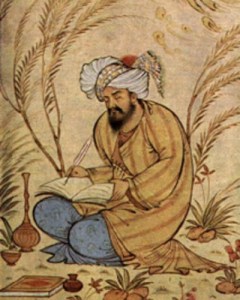
The beautiful pool,
a brimming eye,
has thick eyelashes of flowers.
Turtles cavort
in their capes of green algae.
Now they squabble on the bank
but when winter comes
they’ll dive below and hide.
At play they resemble
Christian soldiers wearing on their backs
their leather shields.
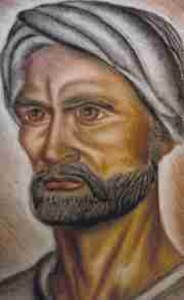
With passion from this place
I remember you.
Horizon clear, limpid
The face of earth, and wind,
Come twilight, desists,
A tenderness sweeps me
When I see the silver.
Coiling waterways
Like necklaces detached
From throats. Delicious those
Days we spent while fate
Slept. There was peace, I mean,
And us, thieves of pleasure.
Now only flowers
Withfrost bent stems I see;
At my eyes their vivid
Centers pull, they gaze
Back at me, seeing me
Without sleep, and a light
Flickers through their cups,
In sympathy, I think.
The sun-baked rose-buds in
Bushes, remember
How their color had lit
Our morning air; and still
Breaths of wind dispense
At break of day, as then,
Perfume they gather up
From waterlilies’
Half open drowsy eyes.
Such fresh memories
Of you these few things
Waken in my mind. For
Faraway as you are
In this passion’s grip
I persist with a sigh
And pine to be at one
With you. Please God no
Calm or oblivion
Will occupy my heart,
Or close it. Listen
To the shiver of wings
At your side—it is my
Desire, and still, still
I am shaking with it
Pure love we once exchanged,
It was an unfenced
Field and we ran there, free
Like horses. But alone
I now can lay claim
To have kept faith. You left,
Left this place. In sorrow
To be here again,
l am loving you.
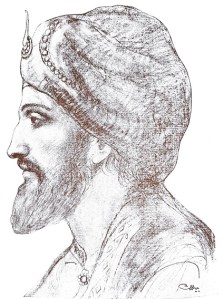
I say to my chains,
don’t you understand?
I have surrendered to you.
Why, then, have you no pity,
no tenderness?
You drank my blood.
You ate my flesh.
Don’t crush my bones.
My son Abu Hasim sees me
fettered by you and turns away
his heart made sore.
Have pity on an innocent boy
who never knew fear
and must now come begging to you.
Have pity on his sisters
innocent like him
who have had to swallow poison
and eat bitter fruit.
Some of them are old enough
to understand and I fear
they will go blind from weeping.
The others are now too young
to take it in and open theirs mouths
only to nurse.
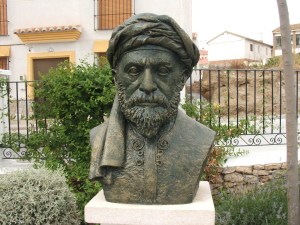
If white is the colour
of mourning in Andalusia,
it is a proper custom.
Look at me,
I dress myself in the white
of white hair
in mourning for youth.
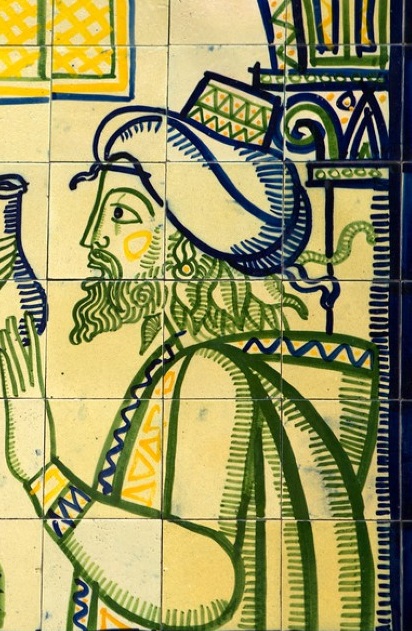
She is an immigrant from other lands.
When she stretches out her ebony wings
shows her ivory body
opens her sandalwood beak
and laughs with great guffaws
it’s a sign of good weather.
We present this work in honor of Shavuot.
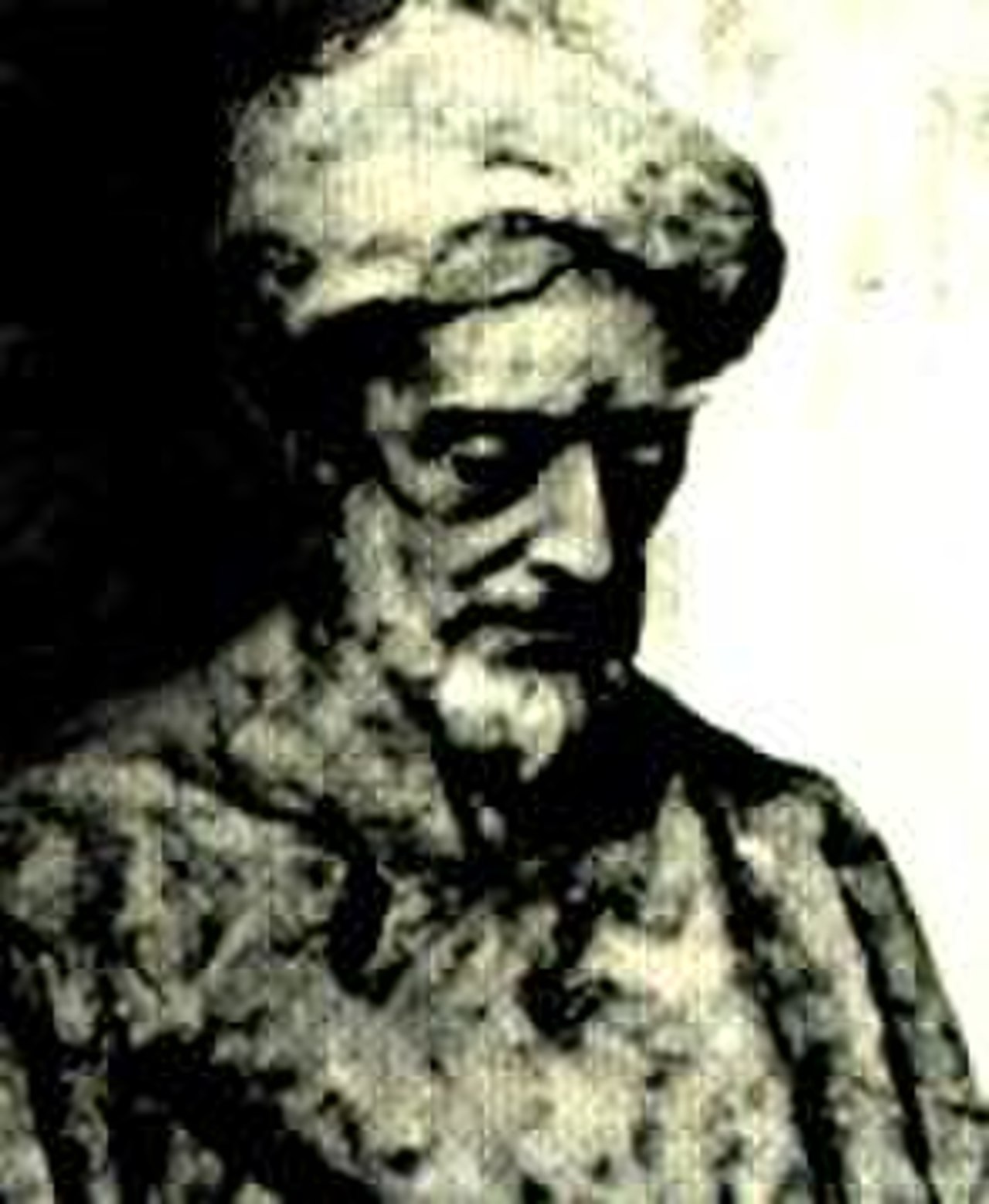
Come, spend a night in the country with me,
my friend (you whom the stars above would gladly call their friend),
for winter’s finally over. Listen
to the chatter of the doves and swallows!
We’ll lounge beneath the pomegranates, palm trees, apple trees,
under every lovely, leafy thing,
and walk among the vines,
enjoy the splendid faces we will see,
in a lofty palace built of noble stones.
Resting solidly on thick foundations,
its walls like towers fortified,
set upon a flat place, plains all around it
splendid to look at from within its courts.
Chambers constructed, adorned with carvings,
open-work and closed-work,
paving of alabaster, paving of marble,
gates so many that I can’t even count them!
Chamber doors paneled with ivory like palace doors,
reddened with panels of cedar, like the Temple.
Wide windows over them,
and within those windows, the sun and moon and stars!
It has a dome, too, like Solomon’s palanquin,
suspended like a jewel-room,
turning, changing,
pearl-colored; crystal and marble
in day-time; but in the evening seeming
just like the night sky, all set with stars.
It cheers the heart of the poor and the weary;
perishing, bitter men forget their want.
I saw it once and I forgot my troubles,
my heart took comfort from distress,
my body seemed to fly for joy,
as if on wings of eagles.
There was a basin brimming, like Solomon’s basin,
but not on the backs of bulls like his –
lions stood around its edge
with wells in their innards, and mouths gushing water;
they made you think of whelps that roar for prey;
for they had wells inside them, wells that emitted
water in streams through their mouths like rivers.
Then there were canals with does planted by them,
does that were hollow, pouring water,
sprinkling the plants planted in the garden-beds,
casting pure water upon them,
watering the myrtle-garden,
treetops fresh and sprinkling,
and everything was fragrant as spices,
everything as if it were perfumed with myrrh.
Birds were singing in the boughs,
peering through the palm-fronds,
and there were fresh and lovely blossoms –
rose, narcissus, saffron –
each one boasting that he was the best,
(though we thought every one was beautiful).
The narcissuses said, “We are so white
we rule the sun and moon and stars!”
The doves complained at such talk and said,
“No, we are the princesses here! Just see our neck-rings,
with which we charm the hearts of men,
dearer far than pearls.”
The bucks rose up against the girls
and darkened their splendor with their own,
boasting that they were the best of all,
because they are like young rams.
But when the sun rose over them,
I cried out, “Halt! Do not cross the boundaries!”